Premium Only Content
![William Cooper: reflecting on how resistance to oppression might have changed history [Lansing Michigan Lecture]](https://1a-1791.com/video/fww1/d9/s8/1/k/8/C/s/k8Csy.8P4e-small-William-Cooper-reflecting-o.jpg)
William Cooper: reflecting on how resistance to oppression might have changed history [Lansing Michigan Lecture]
William Cooper - Lansing Michigan Lecture (1996)
Duration : 1:00:28
William Cooper - Lansing, Michigan Lecture (1996): Summary
Bill Cooper begins by quoting Aleksandr Solzhenitsyn, reflecting on how resistance to oppression might have changed history if people had fought back against unjust arrests. He ties this to the essence of America: not diversity, but freedom. Cooper argues that freedom is the nation’s true foundation, often misunderstood by its citizens.
He introduces himself as a radio host and leader of a civilian intelligence operation, claiming access to vast, hidden knowledge. This role, he says, burdens him with the task of waking up Americans to dangerous agendas—some promoted by those claiming patriotism, others by advocates of a one-world socialist government. He insists evil isn’t intentional; people rationalize their actions, even heinous ones, as justified.
Cooper contrasts his radio persona—provocative to jolt listeners awake—with his in-person approach, speaking from the heart to an already aware audience. He urges self-reflection: What do people believe about America? Are they dividing or uniting it? He warns that angering some is inevitable but hopes to foster understanding.
He traces humanity’s emergence from an “age of innocence,” when people lived instinctively like animals, to a thinking species. Biblically, this is the Fall—Eve eating the forbidden fruit, urged by Satan. In the “Luciferian philosophy” of mystery schools, it’s liberation—Lucifer granting intellect to free man from a cruel God. Cooper explains these competing worldviews: religious belief in God versus humanistic atheism aiming for man to become godlike through knowledge.
This hidden knowledge, he claims, birthed priesthoods controlling societies via mysteries—like fire’s mastery, symbolizing intellect. These priesthoods, not kings, hold true power, historically using sacrifice and manipulation to advance their agendas. Today’s “priesthood,” he alleges, is the Illuminati—high-ranking members of secret societies—pushing a world of debt and control, disguised as happiness.
Cooper asserts America’s enemies wield subtle weapons—propaganda, moral erosion—while people focus on false foes like the Cold War’s Stalin. He critiques Pat Buchanan’s Illuminati ties and warns of theocracy’s dangers, emphasizing freedom as the unifying bond. Without it, no belief or life choice is possible.
He champions a free press, not owned by elites, urging the audience to publish newsletters and broadcast truth—documented facts, not rumors—to counter the establishment. Cooper shares his own efforts, like Veritas and low-power FM stations, encouraging collective action to avoid civil war. He concludes by endorsing Charles Collins for president, realistically noting his slim chances, and ends with a patriotic call to reclaim liberty.
-
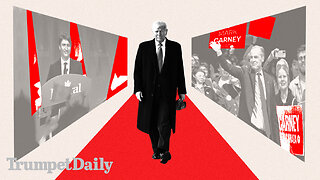 1:00:43
1:00:43
Trumpet Daily
17 hours ago $3.28 earnedCanada Hates Trump More Than the Trudeau Disaster - Trumpet Daily | Apr. 29, 2025
2.73K9 -
 53:01
53:01
State of the Second Podcast
13 hours agoDisarming Americans One Law at a Time (ft. Krate Tactical)
113 -
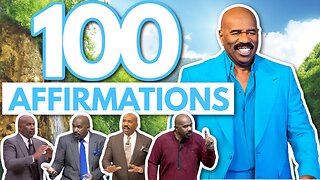 44:36
44:36
The Official Steve Harvey
9 hours agoThe journey ain't easy, but the destination is worth it
44 -
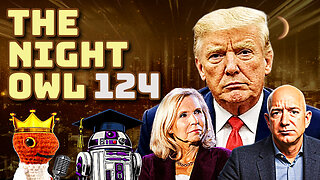 3:03:52
3:03:52
Price of Reason
12 hours agoBezos & Amazon FOLD After Annoying Trump! Paramount Faces TOUGH Choice! Borderlands 4 DELAYED!
103K16 -
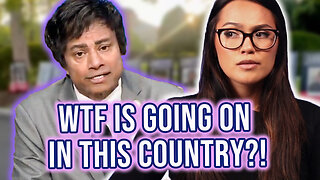 1:19:29
1:19:29
Savanah Hernandez
11 hours agoRogue Judges Continue Blocking Trump's Executive Orders: The First 100 Days
72.6K40 -
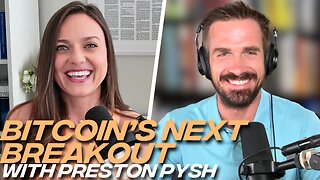 58:42
58:42
Coin Stories with Natalie Brunell
17 hours agoMacro Analysis, Financial Fragility and Bitcoin as the End Game with Preston Pysh
32.6K4 -
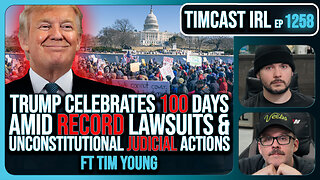 2:35:37
2:35:37
TimcastIRL
8 hours agoTrump Celebrates 100 Days Amid RECORD Lawsuits & Unconstitutional Judicial Actions | Timcast IRL
208K85 -
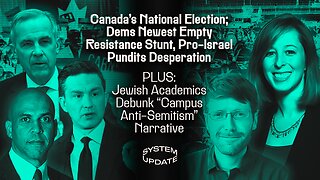 1:01:26
1:01:26
Glenn Greenwald
10 hours agoRapid Fire: Canada Elections, Dem's Sit-In, Israeli Taking Points Escalate; PLUS: Jewish Academics Push-Back on Antisemitism Claims | SYSTEM UPDATE #445
129K125 -
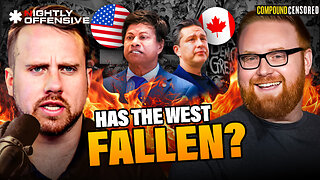 2:20:43
2:20:43
RiftTV/Slightly Offensive
9 hours ago $17.03 earnedTotal Indian TAKEOVER: Has The WEST Completely FALLEN? | Guest: Josh Denny
68.5K27 -
 9:46
9:46
Mrgunsngear
8 hours ago $11.74 earnedHow To Turn Your Glock Into A PCC
68.7K12